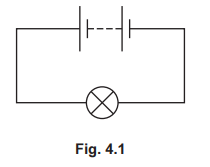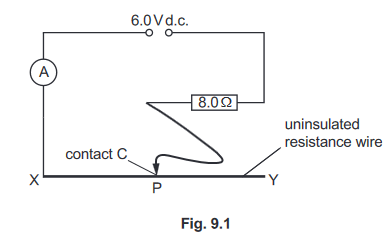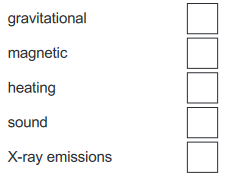Question
Fig. 4.1 shows an electric circuit.

An electric current transfers energy from the battery to the filament lamp.
a) State the two forms of energy emitted by the filament lamp.
1. ……………………………………………………………………………………………………………………………..
2. ……………………………………………………………………………………………………………………………..
b) State which form of energy in the battery is decreasing.
c) Explain how the principle of conservation of energy applies to this circuit.
Answer/Explanation
Answer:
(a) thermal (energy)
light (energy)
(b) chemical (energy)
(c) energy transferred from cell = energy dissipated in lamp
Question:
Fig. 9.1 shows an electric circuit which includes uninsulated resistance wire XY. A teacher shows some students how to complete the circuit by placing the contact C at various positions on the
wire XY.

(a) The students place contact C at Y. They measure the current on the ammeter. Then they move the contact C along the wire from Y to X.
State and explain the effect on the ammeter reading when they move the contact C from Y to X.
…………………………………………………………………………………………………………………………………
Answer/Explanation
Ans: (current/reading/it) increases
(because circuit) resistance decreases
(b) Calculate the reading on the ammeter when contact C is at X.
ammeter reading = ……………………………………………… A
Answer/Explanation
Ans: 0.75 (A)
6(.0) ÷ 8(.0)
V= IR or (I =) V/R
(c) The students move contact C to point P. The resistance of the wire between X and P is 20 Ω.
Calculate the total resistance of the resistance wire between X and P and the fixed resistor.
total resistance = …………………………………………….. Ω
Answer/Explanation
Ans: 28 (Ω)
(total resistance =) R1 + R2 OR 20 + 8(.0)
d) The electric current in the circuit produces two effects.
Place a tick (3) in the boxes next to these two effects.

Answer/Explanation
Ans: tick in 2nd box (magnetic)
tick in 3rd box (heating)
